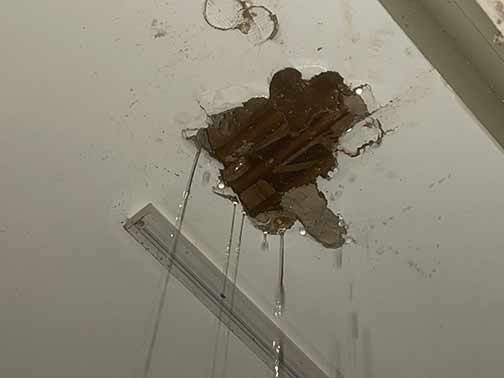
Are you dealing with a burst water pipe in your home right now? Here are immediate steps you can take to minimize the impact of the damage. Remember that the longer you take to act on this plumbing emergency, the more damage it will do to your home says RGroup Management.
- Shut the water supply
This is to stop the flow of water gushing out of the ruptured pipe. Do this by turning off the shut-off wall nearest to the location of the burst pipe. If this doesn’t stop the water, you may have to close the main water shut-off valve. You should find this outside your home on the street-facing side of the building or in the basement, garage, or utility room.
- Turn off the electricity
If the burst pipe is in a room with power outlets on the walls or there is a possibility that the discharged water will reach appliances in the area, you should turn off the electricity supply to your home. Look for the breaker panel and turn off the power supply to the affected part of your home or the entire house, if necessary.
- Drain your pipes
A burst pipe typically happens because of a buildup in water pressure. By relieving the pressure inside the pipes, you can stop the water flow from the broken pipe section. To do this, open the faucets inside the house and allow all the water inside the pipes to drain. Flush your toilets. Turn off your water heater and drain it.
- Clear the area
You can do this step simultaneously with Steps Two & Three. While waiting for the water pipes in your home to drain completely, you can start to evacuate the area. If pets are inside your home, move them to a dry and safe place. Move your belongings, especially items that are vulnerable to water, out of the path of the water.
- Call a professional plumber
A competent plumber will fix the damaged pipe and identify the root cause of the problem to help you avoid a reoccurrence. Unless you know what you are doing, do not attempt to fix the damaged pipe yourself. You could be setting yourself up for worse problems if the pipe bursts again.
- Document the damage
Collect evidence of the damage to your home. This can make the insurance claim process smoother. Take clear photos of the damaged pipe and the resulting water damage to your home and belongings. You may want to accompany these with videos. Do not start your clean-up effort until you have done this, and resist the urge to discard damaged items.
- Get rid of the water
While waiting for the plumber, you can start to remove the water that has been discharged into the home. If you have towels and absorbent materials in your house, place them around the area to soak up the water. A wet vacuum will make your job easier. But if you don’t have access to a wet vacuum, you may use a dustpan to scoop the water into a bucket.
- Dry your home
Once you have removed as much water as you can, the next step is to dry your home. If it is safe to turn the electricity back on, you can turn on the heating or use household fans and dehumidifiers. For better results, you may want to rent commercial-grade versions of this equipment. You may also need to move some items outside to let them dry properly.
How to prevent a burst pipe in your home
The best way, by far, of dealing with burst water pipes in your home is to find and solve the problem before the pipe bursts. What causes a pipe to burst inside your home, and what can you do to preempt this problem?
The most common causes of a burst pipe in homes are:
- Wear and tear: A pipe that is nearing or has passed its use-by-date is more likely to burst
- Blockages: Obstructions may cause pressure spikes that will cause the pipe to rupture
- Extreme cold: If pipes are exposed to cold air during winter, they may freeze and burst
- Faulty installations: A bad plumbing job will predispose the pipes to leakage and damage
To prevent burst pipes in your home, take the following steps:
- Protect your pipes from exposure to cold air during winter
- Monitor your home for changes in water pressure due to leaks or other problems
- Install a leak detector system for early warnings in case there is a leak in your home
Lastly, you need a trustworthy plumber to inspect your plumbing system to identify potential problem areas. Doing this inspection once a year, particularly before winter, will help you avoid plumbing issues that can result in a burst pipe inside your home.


